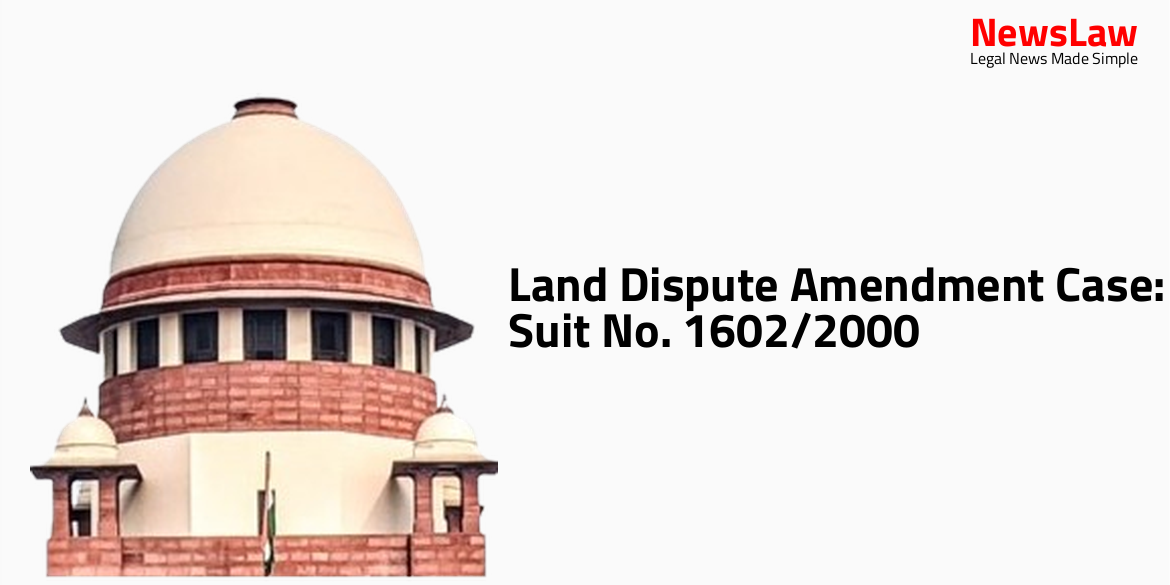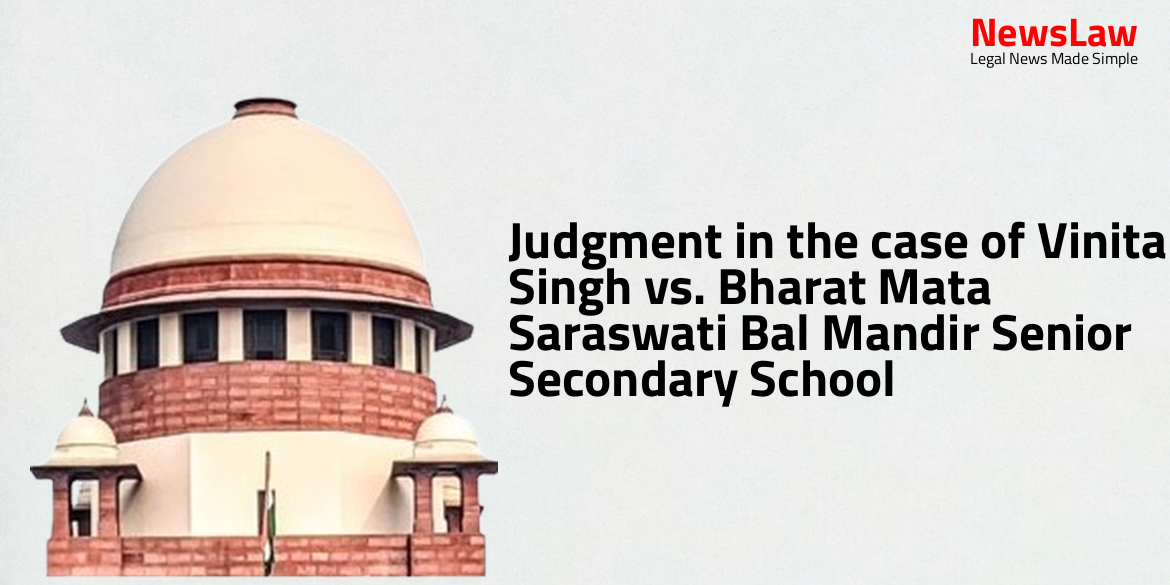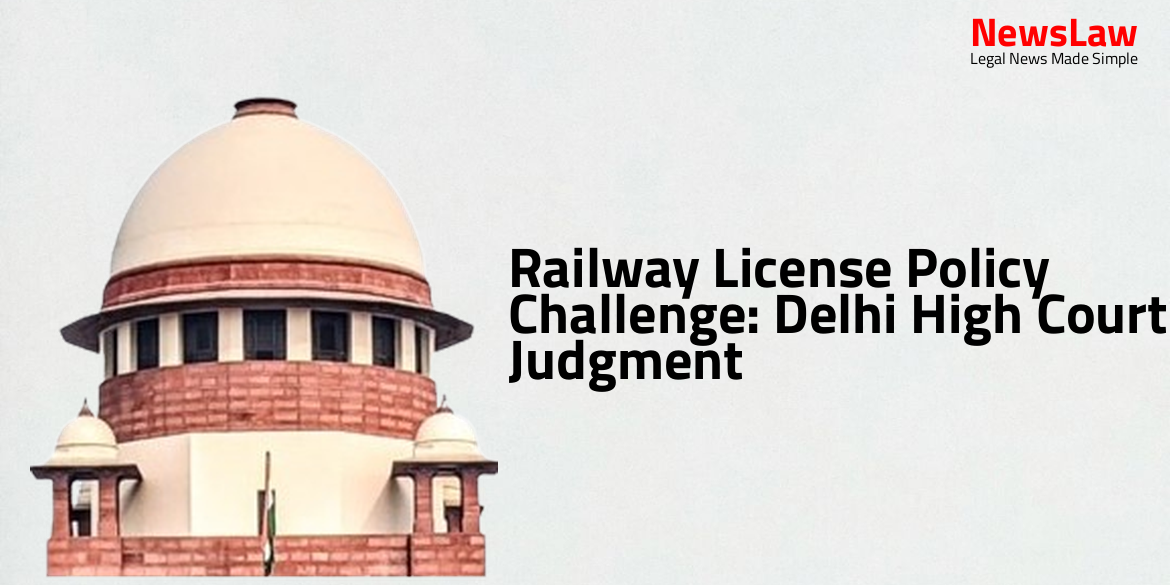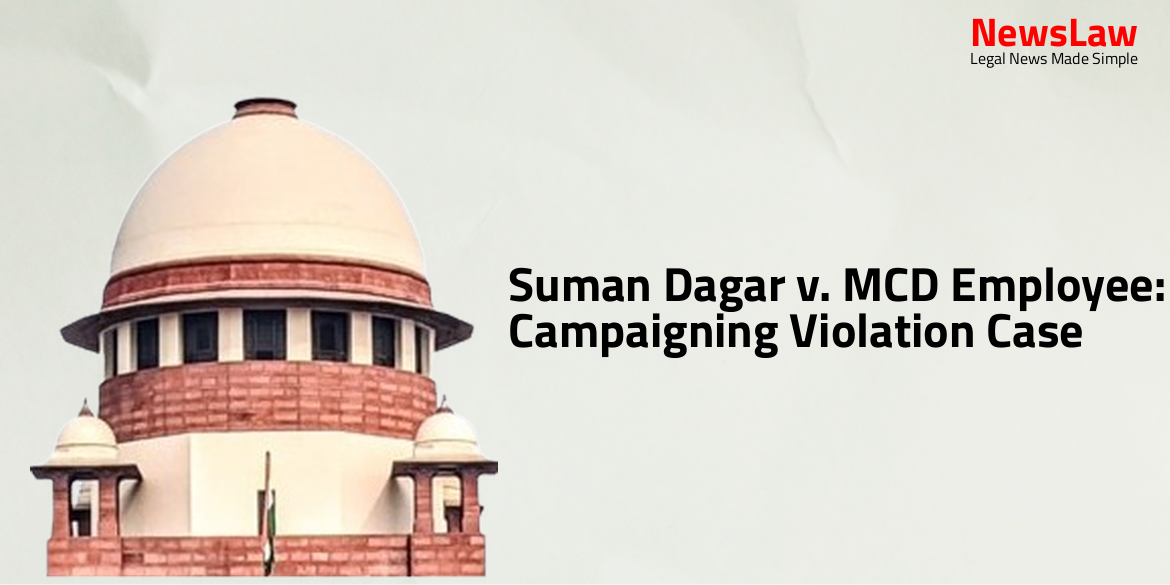Explore the recent judgment by the Delhi High Court in the Land Dispute Amendment Case related to Suit No. 1602/2000. Learn about the key details of this case involving parties in a property possession dispute. Stay informed about the latest legal developments in this complex matter.
Facts
- The respondent filed a suit for possession and damages against the petitioner on 18.03.1997.
- An amended plaint was filed in May of 2000 in Suit No. 1602/2000 as per the direction of the Additional District Judge.
- The petitioners submitted a written statement in October 1997 contesting the suit.
- An application was made to amend paragraph no. 3 and prayer clause ‘a’ of the plaint under VI Rule 17 and Section 151 CPC.
- The trial had concluded, final arguments were made, and the case was at an advanced stage when the respondent sought to amend the claim.
- The amendment sought by the respondent was after a considerable delay and at a stage where no amendment should have been allowed.
Arguments
- The petitioners argued that the respondent’s application for amendment should have been signed by all parties involved, not just the respondents.
- They claimed that the respondents should not be allowed to introduce a new case or document at the final arguments stage under the guise of an amendment.
- The petitioners were concerned about the changing description of the suit property and the introduction of a new document, specifically a fresh site plan, without proper proof.
- The respondents argued that the sought-after amendment is merely clarificatory and does not alter the nature of the claim or the suit.
- They emphasized that no new facts are being introduced, and the amendments are for clarification and formality.
- An oversight led to the omission of the word ‘second’ in the description of the property in the plaint.
- The dispute revolves around the servant room attached to the first floor of the suit premises referred to as the ‘second servant room over garage.’
- The respondents contended that the amendment related to the identity of the suit property was not raised earlier due to lack of awareness, hence the delay in seeking the amendment.
- It was highlighted that the suit consistently pertained to the ‘second servant room in the garage block.’
- The site plan indicates the presence of ‘S Room’ on each mezzanine floor for domestic storage, also serving as servant rooms.
- The respondents’ application for the amendment was deemed appropriate and granted by the Trial Court.
Analysis
- The court may allow either party to alter or amend pleadings at any stage of the proceedings to determine the real questions in controversy.
- The court may permit amendments necessary for substantial justice, with the condition that no application for amendment shall be allowed after the trial has begun, except in cases of proven lack of earlier opportunity.
- The proviso to the provision limits the court’s jurisdiction to allow amendments post-commencement of trial, but exceptions exist if due diligence justifies the delay.
- The court may allow an amendment after trial has commenced if the party seeking it could not have raised the matter earlier despite due diligence.
- In the present case, the Trial Court permitted the amendment based on the Doctrine of relation back.
- Courts should try the merits of the case before them and allow all necessary amendments to determine the real question in controversy, as long as it does not cause injustice or prejudice.
- The court’s discretion to allow amendments is not absolute and should not cause injustice to either party.
- Relevant case laws emphasize the importance of determining the real question in controversy between the parties.
- Amendments can be allowed unless it takes away a legal right accrued by lapse of time or adds fresh allegations or reliefs to the pleading.
- Amendments should not be allowed after the trial has commenced unless the party shows due diligence in not raising the matter earlier.
- A clarification amendment that does not add or alter the substance of the pleading may be allowed without considering the bar of limitation.
- The provision regarding amendment application after trial commencement was restored with a proviso to prevent such applications unless due diligence is shown.
- The amendment of the plaint cannot be permitted after the issues have been framed and evidence has been led by the parties.
- The court must consider whether the application for amendment is imperative for proper adjudication, bonafide, and does not cause irreparable prejudice to the other side.
- Refusing the amendment should not lead to injustice or multiple litigations.
- Amendments should not change the nature of the suit or result in a fresh suit being barred by limitation on the date of application.
- The amendment sought should be made with due diligence and should not alter the fundamental structure of the case.
- The power to allow amendments is broad and can be exercised at any stage of the proceeding in the interest of justice.
- The amendment sought by the respondents is clarificatory in nature and will not cause any prejudice to the petitioners.
- Proper identification of the suit property, described as ‘second room over the garage’ by the respondents, is necessary for effective adjudication.
- Both parties have correctly shown the location of the room in the site plan, but are using different nomenclature to identify it.
Decision
- The court examined the evidence presented by the petitioner.
Case Title: RAJ CHAUDHARY & ANR Vs. COL RAJINDER SINGH BHASINE & ANR (2024:DHC:4121)
Case Number: CM(M)-657/2016



